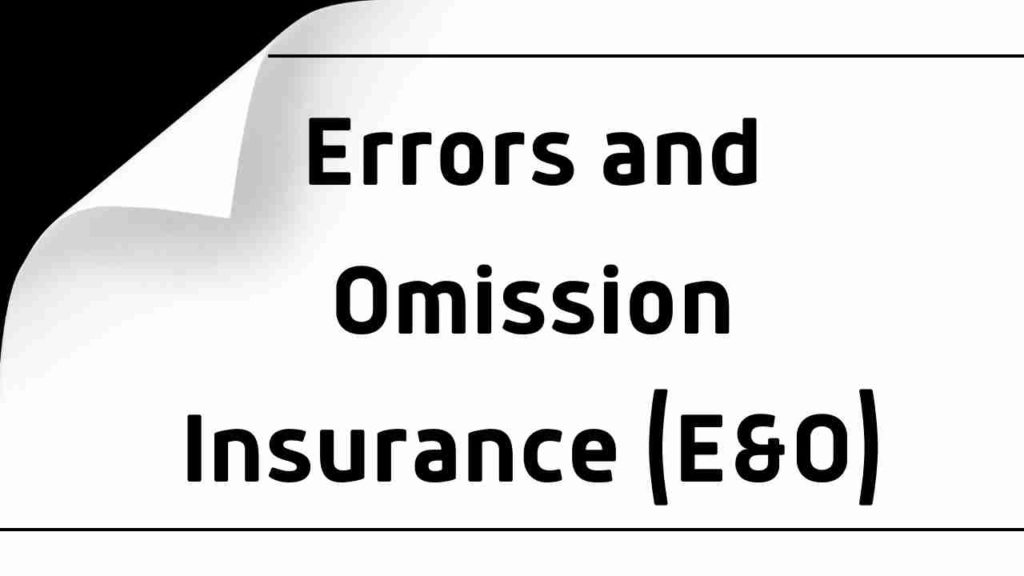What exactly is meant by the term “workers compensation insurance”?
Workers’ compensation insurance provides medical care and other benefits to employees who have sustained injuries or illnesses while performing their job duties.
Included in the benefits are medical treatment and ongoing care, such as physical therapy, compensation for lost wages due to disability, and death benefits in the event that the employee passes away as a result of an injury sustained on the job. The burial cost and survivor benefits, which are a portion of the deceased worker’s wage for a predetermined amount of time, are both potential components of death benefits. (The specific guidelines for survivor benefits are different in each state.)
In the majority of states, businesses are required to have workers’ compensation insurance.
What exactly is meant by the term “general liability insurance”?
The purpose of general liability insurance is to protect your company financially in the event that it unintentionally causes physical harm or financial loss to a third party, such as a client. It addresses the following concerns in particular:
A physical harm that was brought on by the operations of your company. For instance, if a client or a customer is harmed while on the property of your company, any necessary medical expenditures will be reimbursed. Should the consumer choose to file a lawsuit against your company, your general liability insurance will also pay for your legal defence.
A consumer may file a claim for property damage liability if, for instance, an employee accidently breaks a customer’s smartphone, or if an outdoor sign accidentally falls and damages a customer’s vehicle. If your company was legally responsible for the harm that was done to someone else’s property and that person wants to make a claim, they can do so, and your general liability insurance will pay for it.
The term “damage caused by advertising” can refer to a few different things. It’s possible that a copyright violation occurred in one of your company’s marketing materials or in an internet advertisement. An illustration of this would be if your company used artwork without first obtaining permission to do so in an advertisement. Alternately, it could indicate doing anything that is detrimental to someone’s reputation. You may be guilty of advertising injury if, during an interview with the media, you make derogatory comments about another company that end up hurting that company’s reputation.
In the event that you are sued because of any of these issues, your general liability insurance will pay for your legal defence as well as any settlements or court judgements, up to the liability limit that is specified in the policy.
Comparison of Workers’ Compensation Insurance vs General Liability Insurance
The following are some of the most important distinctions between workers’ compensation and general liability insurance:
Workers’ compensation insurance is one type of insurance, and liability insurance protects businesses from lawsuits filed by third parties. Both types of insurance are important (business liability).
Both can provide compensation for injuries, but to different individuals: Injuries sustained on the job are covered by workers’ compensation. Injuries sustained by non-employees of your company, such as customers, are covered by your general liability insurance policy.
In a number of states, having workers’ compensation insurance is mandatory. The state legislation does not need general liability insurance, although licencing boards, company clients, landlords, or financial lenders may request it. General liability insurance is also not required.
You can get protection against general liability by purchasing a business owners policy (BOP), which is a package deal. In addition, a BOP will contain coverage for commercial property insurance and coverage for business interruption. You will be responsible for procuring workers’ compensation insurance on your own.
Variations in Expenses
According to the research conducted by Insureon, the standard monthly premium for a standalone policy of business liability insurance is $42 dollars. When you bundle your general liability insurance with a BOP, which has a monthly premium of approximately $53 on average, you save money.
According to The Hartford, the cost of workers’ compensation is an average of one dollar for every one hundred dollars in payroll. However, the rate that your own small business pays could be significantly different from the average depending on your industry, state, and the number of workers’ compensation claims that have been filed in the past.
If you work in an industry such as accountancy or finance, people will regard your firm as having a lower danger of failing in comparison to the business of someone who works in the construction industry. Because of this, workers’ compensation insurance premiums will be reduced.
Because every state has its unique regulations pertaining to worker’s compensation, the rate is impacted by the state in which you reside.
A history of claims is another factor that can affect workers’ compensation premiums. You should expect to notice a rise in the cost of your workers’ compensation insurance premiums if your company has a history of filing multiple claims for workers’ compensation. When setting a company’s rate for workers’ compensation insurance, a number of factors, including the frequency and severity of claims, are taken into account.
Workers’ compensation insurance provides medical care and other benefits to employees who have sustained injuries or illnesses while performing their job duties.
Included in the benefits are medical treatment and ongoing care, such as physical therapy, compensation for lost wages due to disability, and death benefits in the event that the employee passes away as a result of an injury sustained on the job. The burial cost and survivor benefits, which are a portion of the deceased worker’s wage for a predetermined amount of time, are both potential components of death benefits. (The specific guidelines for survivor benefits are different in each state.)
In the majority of states, businesses are required to have workers’ compensation insurance.
What exactly is meant by the term “general liability insurance”?
The purpose of general liability insurance is to protect your company financially in the event that it unintentionally causes physical harm or financial loss to a third party, such as a client. It addresses the following concerns in particular:
A physical harm that was brought on by the operations of your company. For instance, if a client or a customer is harmed while on the property of your company, any necessary medical expenditures will be reimbursed. Should the consumer choose to file a lawsuit against your company, your general liability insurance will also pay for your legal defence.
A consumer may file a claim for property damage liability if, for instance, an employee accidently breaks a customer’s smartphone, or if an outdoor sign accidentally falls and damages a customer’s vehicle. If your company was legally responsible for the harm that was done to someone else’s property and that person wants to make a claim, they can do so, and your general liability insurance will pay for it.
The term “damage caused by advertising” can refer to a few different things. It’s possible that a copyright violation occurred in one of your company’s marketing materials or in an internet advertisement. An illustration of this would be if your company used artwork without first obtaining permission to do so in an advertisement. Alternately, it could indicate doing anything that is detrimental to someone’s reputation. You may be guilty of advertising injury if, during an interview with the media, you make derogatory comments about another company that end up hurting that company’s reputation.
In the event that you are sued because of any of these issues, your general liability insurance will pay for your legal defence as well as any settlements or court judgements, up to the liability limit that is specified in the policy.
Comparison of Workers’ Compensation Insurance vs General Liability Insurance
The following are some of the most important distinctions between workers’ compensation and general liability insurance:
Workers’ compensation insurance is one type of insurance, and liability insurance protects businesses from lawsuits filed by third parties. Both types of insurance are important (business liability).
Both can provide compensation for injuries, but to different individuals: Injuries sustained on the job are covered by workers’ compensation. Injuries sustained by non-employees of your company, such as customers, are covered by your general liability insurance policy.
In a number of states, having workers’ compensation insurance is mandatory. The state legislation does not need general liability insurance, although licencing boards, company clients, landlords, or financial lenders may request it. General liability insurance is also not required.
You can get protection against general liability by purchasing a business owners policy (BOP), which is a package deal. In addition, a BOP will contain coverage for commercial property insurance and coverage for business interruption. You will be responsible for procuring workers’ compensation insurance on your own.
Variations in Expenses
According to the research conducted by Insureon, the standard monthly premium for a standalone policy of business liability insurance is $42 dollars. When you bundle your general liability insurance with a BOP, which has a monthly premium of approximately $53 on average, you save money.
According to The Hartford, the cost of workers’ compensation is an average of one dollar for every one hundred dollars in payroll. However, the rate that your own small business pays could be significantly different from the average depending on your industry, state, and the number of workers’ compensation claims that have been filed in the past.
If you work in an industry such as accountancy or finance, people will regard your firm as having a lower danger of failing in comparison to the business of someone who works in the construction industry. Because of this, workers’ compensation insurance premiums will be reduced.
Because every state has its unique regulations pertaining to worker’s compensation, the rate is impacted by the state in which you reside.
A history of claims is another factor that can affect workers’ compensation premiums. You should expect to notice a rise in the cost of your workers’ compensation insurance premiums if your company has a history of filing multiple claims for workers’ compensation. When setting a company’s rate for workers’ compensation insurance, a number of factors, including the frequency and severity of claims, are taken into account.
Follow us on Twitter


